Plays by Richard Willett
Producers, dramaturges, directors, ambitious actors, and just plain curious readers can download copies of Richard Willett plays at the New Play Exchange, the world’s largest digital library of scripts by living writers, The annual fee ranges from $10.00 to $18.00 depending on membership type and provides access to more than 61,000 scripts.
Regional theatres, community theatres, and schools seeking rights for local productions can email inquiries to richard@richardwillettwriter.com.
GRIEF AT HIGH TIDE
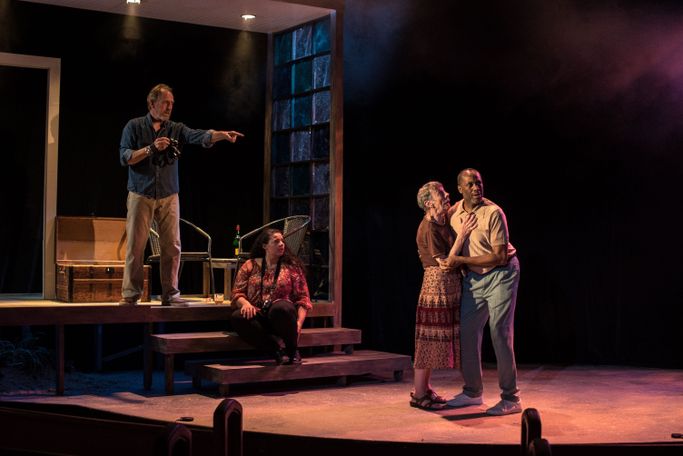
GRIEF AT HIGH TIDE was premiered in 2023 at Vivid Stage in Summit, New Jersey, having already won the top honor at the Capital Rep’s Next Act! Play Summit in Albany, New York. A production is planned for Los Angeles in 2025.
When struggling New York photographer Jennifer Evers tells her entomologist husband Christopher that the photo she took of him by his abusive mother’s deathbed—the one he never gave her permission to take and asked her not to show anyone—was secretly entered by Jennifer in a very prestigious competition, which it has now won, it doesn’t go well. Christopher’s refusal to grant retroactive permission to use the picture seems to bring to a head deeper issues in their relationship: his desire to have children vs. her conviction that he has never really understood or supported her career. They take a time-out: Christopher retreats to his lab upstate and Jennifer goes out on assignment to California, to write and photograph a piece on the fiftieth anniversary of a Pulitzer Prize−winning photograph, Grief at High Tide, taken by news photographer Roy Phelps of a young couple, Doug and Nancy Windsor, at seaside the precise moment they realized their baby daughter had been swept into the ocean to die. Interviewing the three principles, Jennifer finds her hopes of digging deeper into issues of privacy and photography, and marriage for that matter, at first thwarted, but then fulfilled in disturbing ways, especially when after her interview with him the prize-winning photographer, Roy, attempts suicide. Back home with Christopher, Jennifer is ready to let the photo and the prize go, but he surprises her by having deepened his understanding of her work, and telling her she can use the photo after all. She then surprises him by confessing that her time with the bereft parents in California brought home her deep fear of becoming a parent. They decide to forge ahead, to try and navigate these treacherous waters of marriage together.
“‘Grief at High Tide’ addresses the conflicts between art and reality, creativity and science, photographer and subject, privacy and fame. Willett’s play may not resolve these conflicts, but he certainly gives us something to think about the next time we point our cellphone camera and tap the button.”— Ruth Ross, NewJerseyArtsMaven.com
“A powerful and haunting drama about a young photographer’s attempts to reconcile her ambition and artistic sensibility with the deeply-held wishes of the person she is closest to. Masterfully constructed with no wasted words, this is a play that stays with you long after its conclusion.”— Rich Rubin, New Play Exchange
9/10
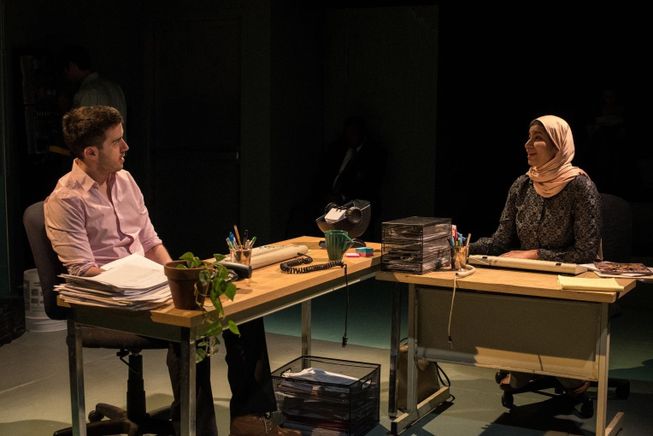
9/10 received its world premiere production in 2023 off-off-Broadway, where it won four Broadway World Awards and universal critical acclaim.
9/10 tells four interwoven multicultural stories that take place in the World Trade Center on the night before September 11, 2001. How does it feel to watch a group of people go about their ordinary lives when you know that in less than twenty-four hours their world will change? Roberto, a young Dominican-American elevator man, is pestered by Walter, an older Black security guard, to turn down his loud music, until Roberto reveals he’s trying to mask the sound of a woman he’s convinced he hears crying in the elevator shaft. During a party at Windows on the World, Colin, a young firefighter, nervously anticipates proposing to his girlfriend Allison, who beats him to the punch by announcing that she never wants to get married, and whose obsession with events that occurred just prior to the Titanic sinking presages her own fate. Working overtime, Scott, a lonely gay account executive, ends up in an unlikely bond with Sahar, a devout young Muslim woman who’s temping the graveyard shift and husband-hunting online in her spare time. And in an empty office, Grace, a tall white actress, and Roy, a shorter Asian actor, running lines for an ill-fated Equity showcase of Barefoot in the Park, teeter on the brink of career suicide — and an unlikely middle-aged romance. In the course of 9/10, it is revealed in sometimes surprising ways that some of these people will be in the towers the following morning, but the play is as much an elegy to an almost-forgotten New York City as it is about the devastation of 9/11. The dreams the city has always inspired — in everyone from Roberto’s Dominican uncle, to Trade Center architect Minoru Yamasaki (Roy’s hero), to playwright Neil Simon, to a woman who was hurt falling in the subway the day before the Titanic sank — are an integral part of the script, as is the enduring voice of those dreams, which survived September 11.
“Powerful, haunting, elegiac, touching—in a world of happy shiny theater this stands out, and you should go see it. Fittingly, it plays through September 10th.” — Lisa Ramici, Hi! Drama
“Under the skillful direction of Eliza Beckwith, ‘9/10’ unfolds as a masterpiece that intricately weaves the lives of its characters in the hours leading up to a life-altering event. This theatrical gem stands as a testament to the power of storytelling, evoking emotional resonance that lingers long after the final curtain call.” — Elucid Magazine
“Richard Willett takes a look back at ‘normal’ life in his moving play 9/10. Set in the World Trade Center, we get to visit four scenarios that take place on the last night of our innocence. . . . Infused with humor, Willett gives us characters that are so real that we create a bond with them. The talented cast breathes life into each one, and we are left to wonder if they lived to see 9/12. Those who did will be forever changed. Kudos to Mr. Willett for reminding us that each casualty had their own story.” — Laurie Lawson, Electronic Link
“The story that really got me was that of office worker Scott (Royce Thomas Johnson) and temp office worker Sahar (Chandini Prakash). Prakash and Johnson are fully living their characters as they confront cultural differences and innate prejudice in an earnest effort to be good to one another. . . . Both characters work out boundaries with each other and, in the process, make willing sacrifices with their eyes opened to each other’s humanity. But one final sacrifice is made blindly because tomorrow is unknown to them—and because we know, it shatters us. “ — Margret Echeverria, Front Row Center
A TERMINAL EVENT
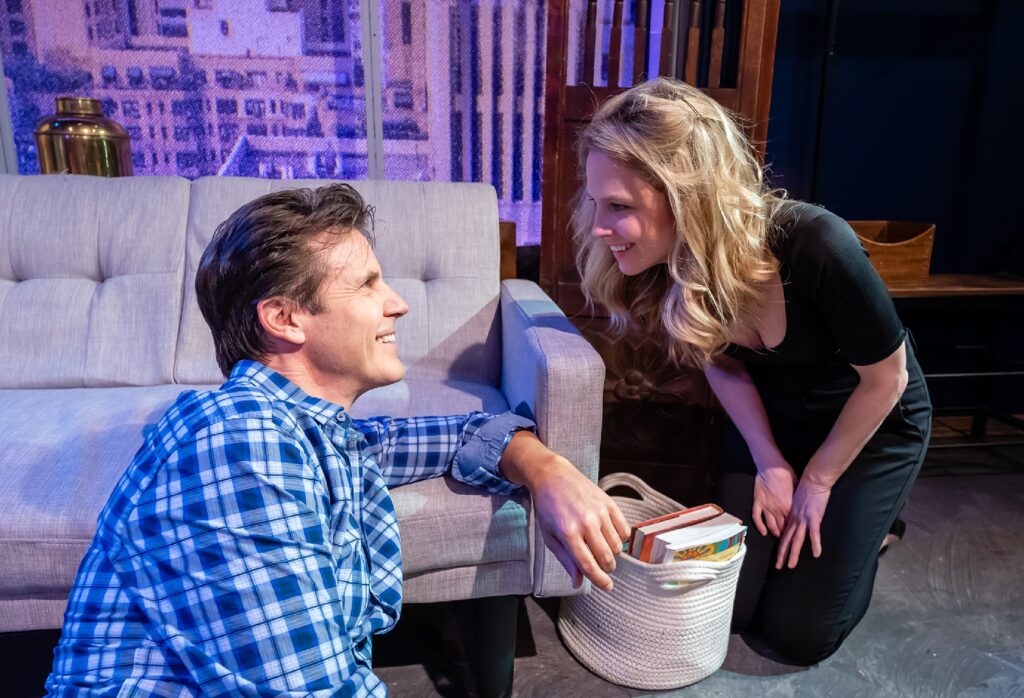
A TERMINAL EVENT (Julie Harris Award winner and Woodward/Newman Award finalist) premiered in 2022 at the Victory Theatre in Burbank, with Stage Raw naming it one of the best plays in L.A. that year.
Katie Milbrandt is an aspiring New York actress working part-time as a medical receptionist when she meets troublesome patient Desmond Forrester, notorious in the office for ignoring Dr. Martin Crossley’s advice and addressing his cancer diagnosis with alternative medicine. Desmond flirts with Katie and teases her about the voice-over work she’s auditioning for with pharmaceutical companies, his theories about Western medicine managing to undermine her faith in both her career paths.
When Desmond continues to pursue a connection with Katie, she resists, until he offers to help her sort through a sea of medical bills she’s been getting over a recent minor procedure. That night, over drinks and dinner, and more drinks back at Desmond’s apartment, they never get to her medical bills because they’re so consumed in arguing about health care — and getting to know more about each other: both raised by mothers alone and both unlucky in love.
When Desmond accidentally sabotages her big pharma audition, Katie wants to be angry, but just then another patient, Roberta, whom Katie has grown friendly with, takes a turn for the worse, and Desmond provides a port in that storm. But when he then disappears for a prolonged length of time, she discovers he’s been avoiding her because he believes his cancer has gone into remission, and he fears her skepticism about his unconventional healing methods will undermine his progress. She’s frightened too, but more than anything of her growing feelings for him.
Roberta’s death and Desmond’s goading get Katie to walk out on a particularly humiliating audition and begin to find the courage of her dream to be a serious actress. But when Desmond’s symptoms return full throttle and he still refuses to see a doctor, she feels she has to walk away from him.
Dr. Crossley’s telling her, however, that a snafu around Roberta’s diagnosis meant that she actually developed symptoms after she had been given the wrong test results (one of Desmond’s pet theories about the real causes of illness), coupled with his revelation that he has heard Desmond has taken a turn for the worse, has Katie quitting that job also and returning to care for a dying Desmond.
In his final days, the two of them are able to overcome past wounding and say “I love you” to each other — something neither has been able to do before — and in the end that love seems to transcend the essential mystery of what healing actually may or may not be. Later, alone at Desmond’s grave, Katie gives thanks for his help in getting her to assert herself, and hears a familiar voice telling her he won’t be far away, continuing to help her do just that.
“Richard Willett’s trenchant new play about science and quackery, life and death, though focused on an oncology department, is about precisely that conundrum. . . . Our penchant for such conflation − disregarding palpable evidence for a larger devotion to faith − may well be our national tragedy too. . . . The performances by McCabe and Coover are so finely tuned, under Maria Gobetti’s direction, that – cancer aside – they present a poignant portrait of loneliness in our time.” – Steven Leigh Morris, Stage Raw
“‘A Terminal Event’ is a wonderful, very cleverly written play about finding love in unexpected places with unexpected people. . . . There’s a lot of humor in this play, even though the subject matter might seem heavy. . . . The humor is perfectly placed, it’s very natural and profoundly moving. . . . After so much fear of the unknowable over the past two years, the arts and particularly the theatre can be a place of solace and discovery and perhaps even a little peace.” − Samantha Simmonds‐Ronceros, NoHo Arts
“Willett’s thought‐provoking drama is both an indictment of the profit‐driven medical industry and its opposite surrogate option, the world of alternative healing. . . . Thankfully, the playwright also has a wry sense of humor that keeps things from getting too depressing. . . . By Act Two the two lead actors settle beautifully into a more real and trusting bond that makes the end of the play poignant and ultimately quite heartbreaking.” – Travis Michael Holder, Ticket Holders L.A.
TINY BUBBLES
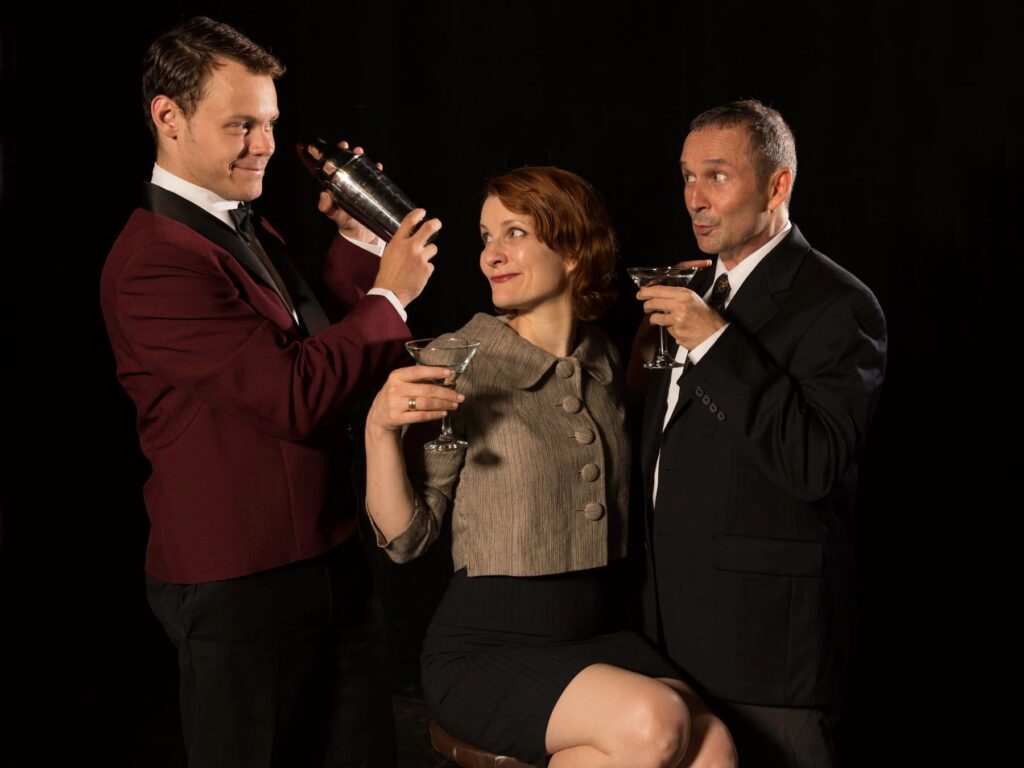
Having twice been short-listed for the Public Theater’s New Work Now! festival and won the Best New Play Award at the Firehouse Theatre in Richmond, VA, TINY BUBBLES received its World Premiere production off-off-Broadway in 2012.
When his platonic roommate and chief drinking buddy, Kirk, decides to join AA, Danny is accepting on the surface, although he wants nothing to do with what he calls “a group of self-important drunks sitting around an ugly, crowded room, consuming more coffee and smoking more cigarettes than you’d think was humanly possible.”
As Kirk’s relationship with AA deepens, however, Danny finds himself plunged into two peculiar dreamworlds, in one of which he’s a Madison Avenue executive in the 1950s given to joining his gal pal Abigail for three-martini lunches, and in the other of which he’s a cloistered pre-Vatican II nun giving counsel to a troubled postulant, who is the same young woman, Abigail.
In real time, Kirk’s sobriety grates more and more on Danny, whose own drinking now has a spotlight cast on it. And the distance between them seems to trouble Kirk even more deeply — until a night when, in the interest of making amends with anyone he’s ever wronged in life, he confesses a hidden truth.
The honesty of Kirk’s emotion seems to push the final button for Danny. His dreamworlds fall apart, too. Just when he’s begun to actually crave the solitude of the nunnery, the Second Vatican Council changes everything and the mother superior prods him to rejoin the outside world. And his cherished 1950s bar life also comes to seem a flimsy hideout, when an incident involving Abigail and her best friend reminds Danny of just how mean the world of Doris Day-Rock Hudson movies would have been for him.
At home, he finds Kirk back on the bottle and embarrassed by his confession, and it seems to fall to Danny — fired from his job, dreams turned to dust — to steer the course of their future life — with surprising results.
“These are tough times for drinkers, and Richard Willett’s TINY BUBBLES cares! A likable play in which Jay Alvarez is congenial and funny and Amy Staats is sympathetic and believable. The premise is a winner.” − Anita Gates, New York Times
“Take one part codependent friendship, one part two-fisted drinking habit and stir. Now shake things up by adding a liberal pinch of sobriety to the mix, and you have the makings of a sassy little cocktail called TINY BUBBLES.” − Scott Stiffler, Edge New York City
“TINY BUBBLES is a snap crackle pop piece that also examines the delusions and illusions we keep in order to function, the difficulty of altering personal behavior, and the challenge confronted by actual change. You’ll either want a martini as soon as possible, or not ever again!” − Harry Kollatz, The Blue Raccoon
“TINY BUBBLES is a sheer joy that also packs an emotional wallop. The subject is alcoholism, but the play (as with all great plays) is ultimately about how we should lead our lives and is therefore timeless.” − The Public Theater (where the play was twice a finalist for the New Work Now! festival)
THE FLID SHOW
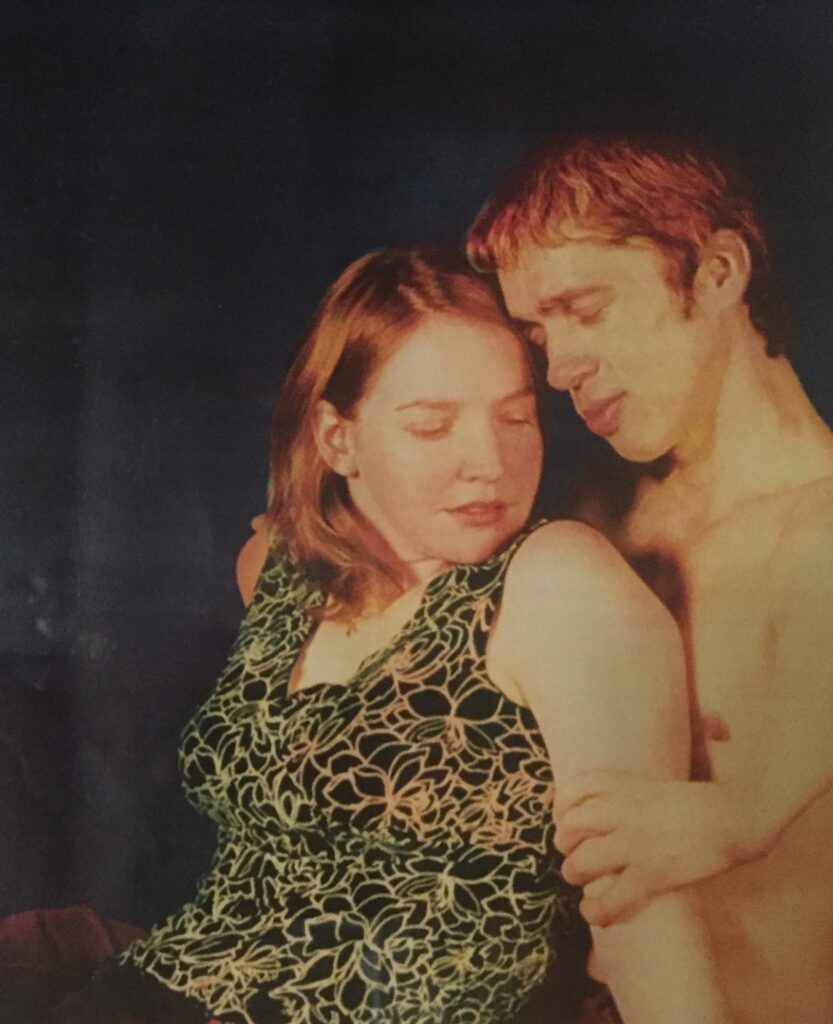
THE FLID SHOW was developed through grants from the Alfred P. Sloan Foundation at Ensemble Studio Theatre in New York and in a student production at Alfred University in Alfred, New York, before premiering off-off-Broadway in two New Directions Theater productions, in 2003 and 2004. It had previously received support or readings from the Victory Gardens Theater, the Denver Center Theatre, the New Harmony Project, the Playwright’s Center’s PlayLabs, the Ludwig Vogelstein Foundation, the Anna Sosenko Assist Trust, and the New Century Writer Awards.
Duncan Mowbray is a charismatic, belligerent English nightclub singer born with short arms because his mother took the drug thalidomide. He’s living with his sister and performing an act in which he sings only songs from 1962, the year of his birth and the birth of thousands of other “thalidomide babies.” Despite his obsession with the time period, Duncan wants nothing to do with anything that identifies him as a “flid,” especially a group that has been pestering him to sing at a candlelight vigil to commemorate the fortieth anniversary of the drug, which caused an epidemic of malformed births throughout Europe and the world.
Duncan’s established, if limited, way of life is disrupted by visits from a series of somewhat zany but determined spirits who take him on a journey into the dramatic story of the drug, and by a meeting with his sister’s attractive young friend Rachel Stohl, a doctor who is considering trying the newly redeemed medication on a terminally ill patient.
Duncan and Rachel seem to take an instant dislike to each other, but as the spirits continue to guide Duncan into a new relationship with his dark past (including the suicide of his mother, a driven, perfectionistic painter), he and Rachel move on a bumpy course toward mutual attraction and the melting of each other’s defenses.
On a final leg of his journey in time, Duncan is able to confront the inventor of thalidomide himself, who turns out to be an ironic source of worldly wisdom and leads Duncan to appear at the commemorative vigil after all, where he expresses his newfound tolerance of life’s essential imperfection with a final, and surprising, song.
“Absorbing and often poignant. Gains an unsettling topicality. Mat Fraser is seasoned and charismatic.” − Charles Isherwood, New York Times
“A tempestuous love story between a disaffected disabled performer and a neurotic pediatrician, The Flid Show is funny, harrowing, and brave.” − Time Out New York
“An unforgettable experience. The Flid Show weaves a beautiful tapestry of theatrical conventions in a two-hour journey through history, tragedy, and one man’s life.” − Richard Hinojosa, nytheatre.com
“Fabulous. Breathtaking. In the powerful scene that ensues from Duncan’s girlfriend showing him a bottle of thalidomide, the combination of Mat Fraser’s performance and Richard Willett’s brilliant writing makes for a shattering theatrical moment. Could make a stone weep.” − The Siegel Column, TheaterMania
RANDOM HARVEST
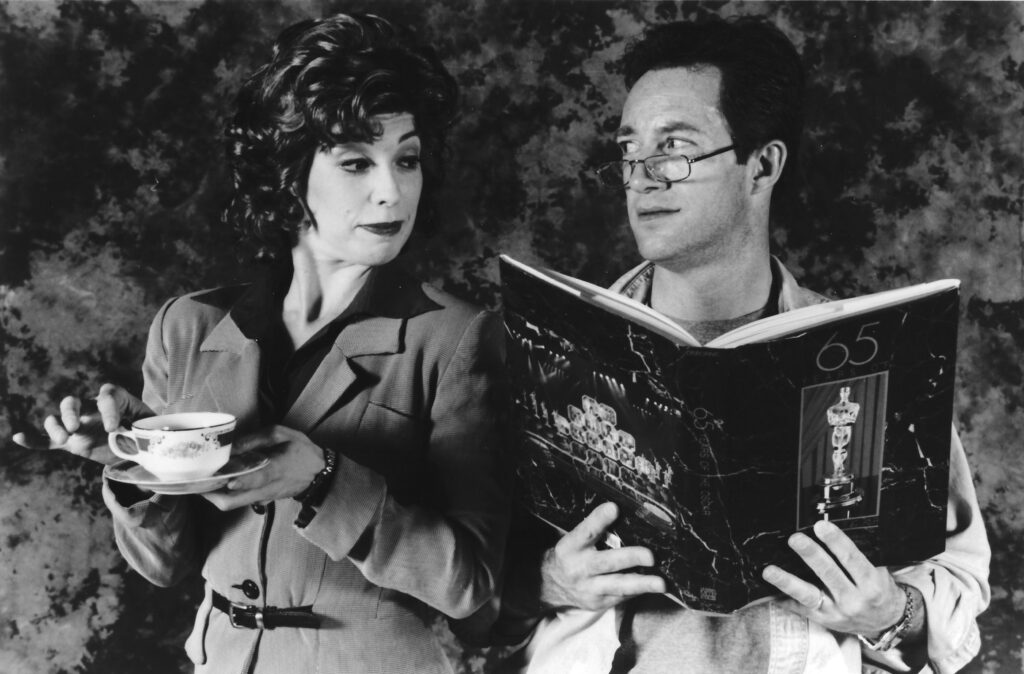
RANDOM HARVEST premiered off-off-Broadway in 2001, having been developed through readings in Octoberfest at Ensemble Studio Theatre.
Aaron and Jimmy’s five-year relationship is disrupted when playwright Aaron is nominated for a Drama Desk Award. Though neither of them is entirely sure what a Drama Desk Award is, it’s important enough to get Aaron’s name in the New York Times and to have the phone ringing off the hook. Jimmy is in hog heaven: This is exactly the kind of step up to fame and fortune he’s been waiting for since he gave up acting and moved in with Aaron. Aaron, however, a moody, actor-hating stay-at-home, finds himself paralyzed with fear, waking up in the night with visions of horror, crying out the name of a 1940s Greer Garson movie called Random Harvest. He’s also driven to make contact with the subject of an article he’s fact-checking for a living: Donna, the mother of a high school senior who committed suicide shortly after winning a prestigious athletic trophy.
In the days following the announcement of Aaron’s nomination, Jimmy’s excitement, and his frustration with Aaron, builds, and they both find themselves drawn into Aaron’s visions, now focused almost exclusively on one of the supporting players in Random Harvest, Susan Peters, a young actress who received an Oscar nomination in 1942 for the movie and was then apparently never heard from again. Assisting Aaron’s investigation into what happened to Susan Peters and why she’s haunting him is none other than Greer Garson, who pops up in the kitchen one day as a kind of guardian angel.
On the night of the Drama Desk Awards, Aaron stays home and Greer informs him that he has in fact been assigned the task of helping Susan let go of her life on Earth and cross over into Heaven. Aaron has no idea how or why he’s supposed to do this, but before he has time to think about it, Jimmy returns from the award ceremony with surprising news — and the announcement that he’s leaving Aaron. Stunned, Aaron is then confronted with Susan, who, when he attempts to carry out his assignment from Greer, finally reveals the truth of the terrible accident that ended her career and her life.
Armed with this information and the transcendent experience of Susan’s ascent to Heaven, Aaron is able to offer Donna his first real insight into why her son may have killed himself, and to finally confront his own terror of success and move forward with his work and his life, alone now but more self-aware, and touched by the power and mystery of fate and choice.
“Out of some very whimsical threads, Richard Willett spins a clever and affecting look at how the fear of success can sicken into self-destruction.” − David Cote, Time Out
“Richard Willett’s funny, touching play is a total joy, wonderfully informed with a deep-grained love of movies and theatre. Its histrionic reincarnation of actual actresses proves every bit as incisive and imaginative as Claudia Shear’s wonderful Mae West riff, Dirty Blonde.” − David Noh, New York Blade
“As he has in his previous works, Mr. Willett uses a deliciously skewed take to create a heartfelt comedy, well-developed characters, and a completely engaging evening. At once buoyant and emotionally grounded, Mr. Willett’s play seemingly gleefully abandons a need for reality in examining the larger issue of why we do what we do — and how it sometimes doesn’t make sense.” − Christopher Byrne, LGNY
“An insightful, layered, funny, and surprisingly poignant play. As Greer Garson, Patricia Randell steals the show: reason enough to go see it. She’s nearly matched by Jay Alvarez’s unapologetically fey Jimmy, whose shtick pays off handsomely in one of the most heartfelt and moving separations in recent (perhaps all) memory.” − Les Gutman, Curtain Up
TRIPTYCH
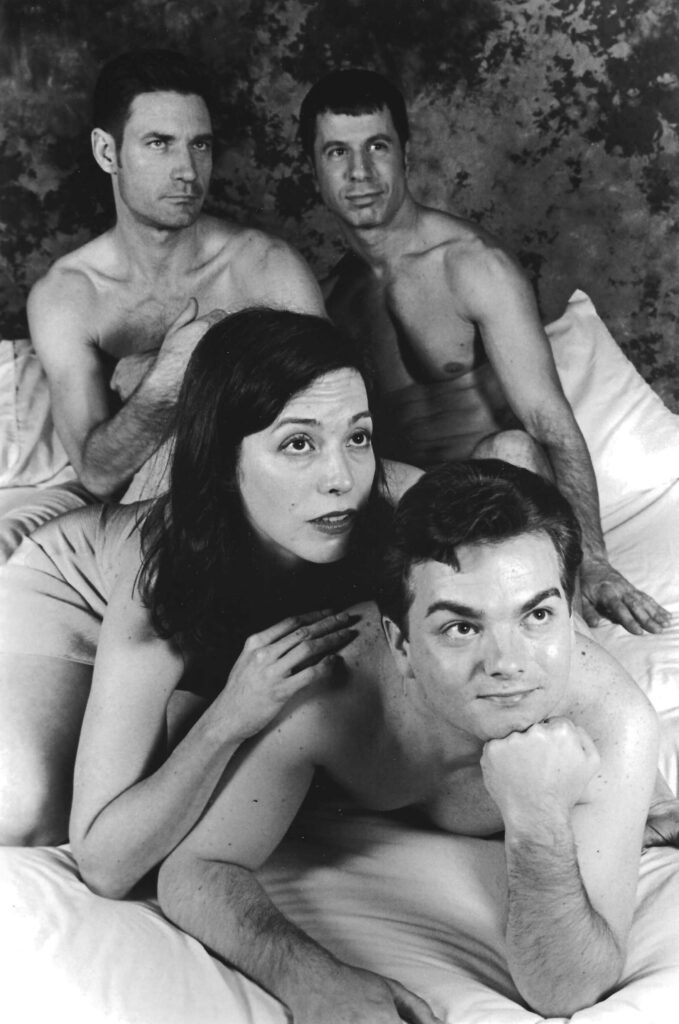
Following a great review in the New York Times, TRIPTCYH immediately sold out its first off-off-Broadway run in 1999, then came back for another in 2000. It was subsequently produced at the Little Room Downstairs in Houston.
Carey and his lover Bernard break up when Carey’s experiments with tantric sex lead him to explore his bisexuality. He becomes involved with Rosemary, a book editor with issues of her own, and Bernard, hoping finally to cruise the scene unshackled by Carey’s crazy theories, finds himself instead seduced by Dennis, a liquor delivery man who wants to return to the 1950s with Bernard as his “female” companion.
In his work as a journalist, Carey is writing an article about the infamous nude posture photo program, in which freshman students at Ivy League universities from the 1930s until the 1960s were forced to pose for a triptych of revealing pictures. Paralleling his and Bernard’s return to the single life is the story of Helen at Radcliffe in 1935, who poses for her posture shot only with morbid reluctance. When it’s discovered that the negatives for her class have been stolen, Helen’s worldly-wise sister Debbie hatches a scheme to swipe the freshman boys’ photos in revenge.
A third story develops in the home of what turns out to be Carey’s family, circa 1974, where they are recovering from the apparent suicide of Carey’s brother, Keith. His grandfather, Chester, suffers from a bizarre Tourette’s-like symptom that causes him to erupt into somewhat obscene declarations about nudity, as if he is perennially coming upon someone undressed. It evolves that he is in fact the Harvard freshman who falls in love with Helen in the 1930s story. He marries her, but beginning with her nude photo experience, she slowly loses touch with reality and is unable to tolerate intimacy with him.
So Carey’s research into the posture pictures becomes a journey into himself and his family, culminating in the tracking down of his mother, who has been missing for years, and a meeting with his father, now a successful pornographer living in upstate New York.
From Rosemary, Carey learns a lot about women and his capacity to love them, but to come to terms with his deepest fears, he feels in the end he must be with a man, specifically Bernard, who has learned a thing or two himself in his role as Bernice, Dennis’s “wife.”
“A funny, insightful new play!”− Anita Gates, New York Times
“Profound! Almost cinematic as it leaps from one decade and scene to another, Triptych is an ambitious endeavor by a playwright who has many gifts to share.” − Ricky Spears, In Theater
“Genuinely fascinating! Triptych is a thoughtful and challenging work that will stimulate after-theater conversation for hours and hours.”− Martin Denton, nytheater.com
“Richard Willett has been the recipient of both an Edward Albee Foundation Fellowship and a Tennessee Williams Scholarship, and the influence of both writers is obvious. His writing is literate and ironic, with some brilliant comic touches. Go see it and stretch your mental muscles. The payoff is well worth it.”− Gary Laird, This Week in Texas
S.O.S.

Richard Willett’s first produced full-length play was S.O.S., produced by New Directions Theater off-off-Broadway and then by NewGate Theatre in Providence, RI, both in 1995. Earlier it was a finalist at the Eugene O’Neill Theater Center and for New Dramatists’ L. Arnold Weissberger Award, and developed with playwright Wendy Hammond while Richard was a Tennessee Williams Scholar at the Sewanee Writers Conference.
Stuck in what he perceives to be a dead-end relationship with his boring and annoying companion Sheldon, Brian plans to leave, and as he does so, he finds himself recalling the affair he had, in in his early twenties, with a fellow New York actor named Adam, who was exploring his bisexuality while his dancer girlfriend was on the road in 42nd Street. Scenes of Brian and Adam’s intense involvement alternate with depictions of Brian suffering through his seventh year of shared domesticity with Sheldon, who is something of a bumbling eccentric, but also seems very committed to the relationship and to Brian, and in particular, as Father’s Day approaches, to encouraging Brian to improve his relationship with his father, who is an S.O.S., a survivor of suicide (his brother’s), and emotionally withdrawn as a result.
Throughout his affair with Adam, Brian attempts to have a conversation with his father in Washington State, but his father will never stay on the phone long enough to talk to him. Brian is also haunted by events in his own past, which he and Adam romantically believe their relationship can heal. Then, when he signs on as a volunteer for the ill-fated Dukakis presidential campaign, Brian meets Sheldon, who is much more withdrawn and hesitant than in the present-day scenes.
In the present, Sheldon becomes aware of Brian’s intention to leave and pleads with him to stay. Brian then recalls the demise of his relationship with Adam, who attempts to deny it once his girlfriend returns to the city, and his growing, somewhat mysterious attraction to Sheldon. When Sheldon reveals that he is also an S.O.S. (his former boyfriend committed suicide), Brian is pulled inexorably toward him.
Recalling these beginnings with Sheldon prods Brian to finally have the conversation he has been waiting to have with his father, and to recommit to Sheldon, whom he now sees as representing the closeness that has always eluded and frightened him.
Moving back and forth in time, weaving family history with adult sexual intimacy, the play is an attempt to probe the psyche of its main character with humor, honesty, and optimism about the potential for human beings to relearn the ability to love.
“Willett’s storytelling technique keeps the night alive. He shows almost total control of this technique of multiple nested flashbacks. He depicts a love triangle one of whose dimensions is time. (He also leavens the sentiment with funny lines.)”− John Chattterton, Of-Off Broadway Review
“I’d like to say that despite my preference for ‘reality’ theatre, I did enjoy the show. Many shows depicting the lives of gay men tend to stereotype them: flaming homosexuals who can’t commit and behave promiscuously until they die of AIDS. Not so here. With the exception of Adam, a promiscuous bisexual, the men in this play prefer monogramous relationships. A much welcome change of pace.”− Jayne Travers, Providence Magazine
“Richard Willett has written a sizzling, emotional and often very funny play about relationships. While there is no question that this is a ‘gay play,’ it is also universal in dealing with problems that all of us have seeking our identity, relating to people, and dealing with intimacy.”− Don Fowler, Cranston Herald
THE GODSEND

After readings at the Public Theater, the American Globe Theater, the Boston Post Road Stage Company, the Sierra Repertory Theater, the Shoebox Theater Company, and First Stage (Hollywood), Richard Willett’s first full-length play, THE GODSEND, finally received its World Premiere production by New Directions Theater off-off-Broadway in 1997, where it won an OOBR Award as one of the outstanding productions of the year.
The Godsend deals in a humorous but thought-provoking way with the impact on a group of friends when one of them claims to have been contacted by beings from outer space. As the group, all near thirty, gathers at the summer house they share in Upstate New York, Gail confronts them with her conviction that the previous summer they were visited by space aliens, who have told her they will be visiting again that night. Each person in the group brings his or her own set of needs and expectations to Gail’s revelation, and each has a unique response to the possibility of transcendent experience.
Beverly, Gail’s lover, has just somewhat reluctantly joined particularly AA and resents Gail’s recent metamorphosis, as it seems to compound their status as outsiders, both as lesbians and because Gail is black.
Susan, Gail’s best friend from college, experiences Gail’s quest as yet another thing that distances her from her friend. As well, Susan Jeff feels alienated from her husband, who is abnormally obsessed with the Kennedy assassination and the meaninglessness it seems to have bequeathed him and his generation.
Also present is Henry, a naive, out-of-work actor/playwright who grew up with Gail and whose preoccupation with the Academy Awards is so intense he often expresses himself in actual acceptance speeches. Henry is infatuated with Joe, Jeff’s college buddy, who has recently made a lot of money directing videos for Madonna and used it to feed a drug habit born of his disillusionment with “success. “
Joe’s girlfriend, Angela, the lone stranger in the group, was raised at a “personal transformation center” run by her parents in California, and her cynicism sets much of the play in motion, particularly in Act II, when Gail claims that a second visitation has taken place, and Angela, to prove her wrong, regression leads Susan and Jeff through hypnotic regression — with surprising results.
“Once he has established the necessary background, Willett’s excellent feel for his characters takes over, and the play becomes riveting. . . . By packing his characters into a small cabin and confronting them with the unknown, Willett has created a microcosm of emotions that is truly astounding, and completely believable.”− Sarah Stevenson, Off-Off- Broadway Review (which awarded the play an OOBR Award as one of the outstanding productions of 1997)
“Even if you find distraction in meeting aliens or solving the mystery of JFK’s assassination, that you still need human connection is the point driving Richard Willett’s millennial comedy. In the lighthearted roundelay the hard thing isn’t believing but connecting, as a passel of friends discover in one of those country-house group thinks.”− Laurie Stone, Village Voice
HOT AIR
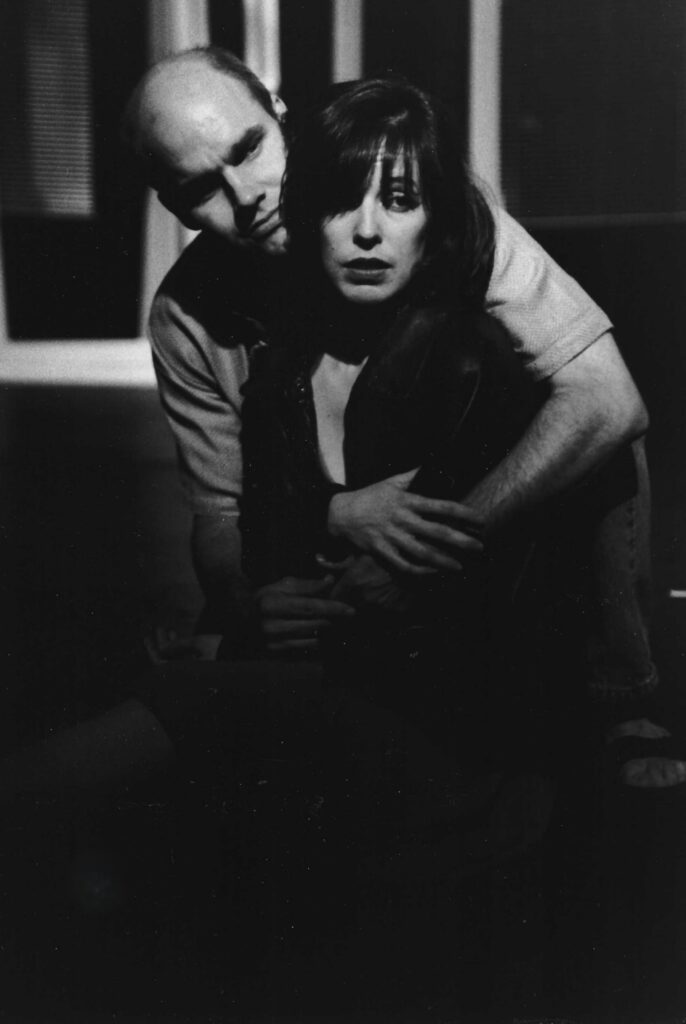
HOT AIR is an evening of four one-act plays by Richard Willett (“Boys Will Be Boys,” “Hot Air,” “2B,” and “Signature Required”) that premiered off-off-Broadway in 1997. “Boys Will Be Boys” had been previously produced OOB and also published in the AIDS journal Art & Understanding. It was later selected for inclusion in the collection Art & Understanding: Literature from the First Twenty Years of A&U.
“If you found yourself reminded of James Thurber or Jules Feiffer, don’t be surprised. Mr. Willett has the same intelligent wit and compassion for the human condition.” − Christopher Byrne, LGNY
“Richard Willett’s four one-acts are set in a New York that is sexy and sorrowful, filled with longing and the proximity of loss.” – Laurie Stone, Village Voice
“The world according to Richard Willett finds the romantic entwined with the ridiculous until you’re unable to tell the two apart.” – HX
Certain Doubts

Once called an “off-off-Broadway standard,” the one-act CERTAIN DOUBTS may be Richard Willett’s most produced play, having been presented five times in New York alone and every weekend for several months in Los Angeles, as well as being a finalist in numerous competitions and festivals across the country.
Certain Doubts concerns an emotional but also humorous confrontation between two young men. The night before his live-in girlfriend is to arrive home, David accidentally locks himself out of their apartment. Luckily, he gave copies of his keys to Stephen, his best friend from college, who lives in the same building. But when David arrives at Stephen’s place, he finds that Stephen has lost the keys and seems oddly unconcerned about it and anxious for David to spend the night there.
For reasons of his own, David does not want to do this, but he is not left with much choice. Stephen, whose girlfriend just left him, is morose and preoccupied by the past, and, despite David’s best efforts, refuses to look on the bright side of anything. This conflict becomes more pronounced as Stephen keeps steering the conversation toward the subject of homosexuality, which is the last thing David, a somewhat homophobic Phys Ed teacher, ever wants to hear about.
As Stephen’s revelations become more and more specific, including the admission that he is in love with David, his friend’s reactions become more and more fearful and implausible. Stephen does not just want to tell David that he is in love with him, he is intent on proving that David has these feelings, too. His increasingly desperate pursuit leads ultimately to David’s confessing more than Stephen bargained for and revealing in the process that he is not as shallow as might have been supposed.
UNPRODUCED
WEEKEND AT THE WILLARD
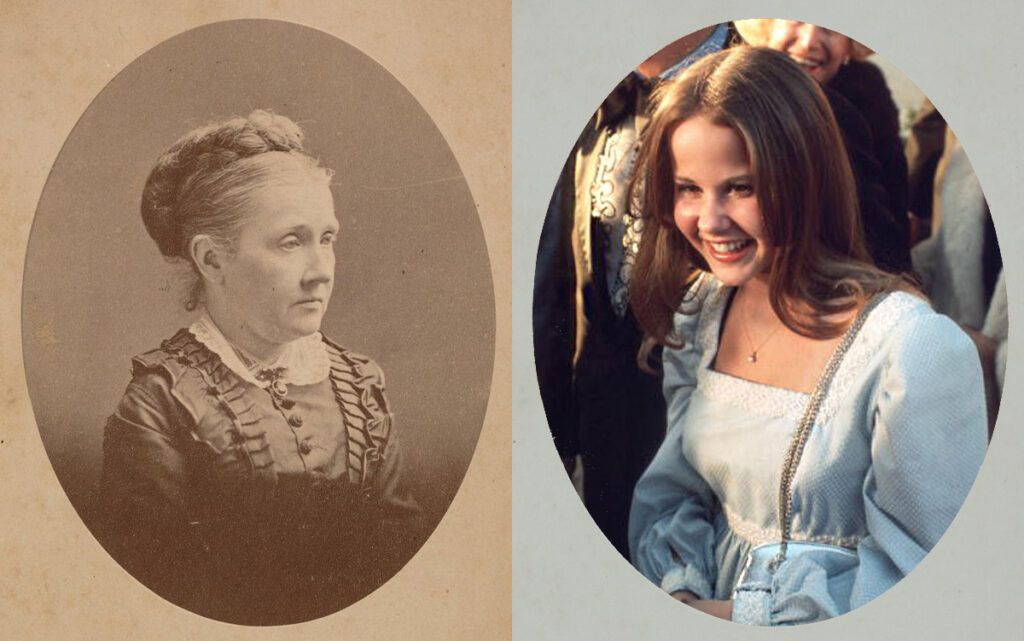
WEEKEND AT THE WILLARD was given well-received readings at the Actors Theatre of Washington, DC, and as part of the annual Octoberfest at Ensemble Studio Theatre in New York, but remains one of Richard Willett’s only unproduced plays. Perhaps the fact that there are several musical numbers and 13 characters — including the abolitionist Julia Ward Howe, the actress Linda Blair, and a 14-year-old black boy who believes he’s Barbra Streisand — has something to do with it. Who knows? It may, however, also be a masterpiece waiting to be born.
A Black family from 1964 Cleveland is spending a weekend at the historic Willard Hotel in Washington, DC, as a prize the mother, Eleanor, has won for a mysterious essay she’s written on the Kennedy assassination. Her husband, Calvin, is a Civil War buff but his kids couldn’t be less interested; they have concerns of their own: Destiny wants to fly to Hollywood and audition to replace blond Marilyn on The Munsters and Darrell believes himself to be the young Broadway star Barbra Streisand. The family is joined in the hotel dining room by Jordan and Penny, a newly engaged couple from 1974: He’s traumatized by the unfolding Watergate scandal and she can’t get the voice of Enos, an ape from the Mercury space program, out of her head. At the third and final dining room table sit Will and Ian, a forty-something gay couple from the modern era whose relationship is straining under the weight of Will’s faded glory as a country-western star and the more starry-eyed show-biz dreams Ian carries from his Canadian childhood.
The strange mood of the hotel dawns more and more on Ian. The young waiters in the restaurant seem oddly reminiscent of him and Will. And the hotel’s other guests — who eventually include a singing hippy, the former child star Linda Blair, and the abolitionist/poet Julia Ward Howe, who wrote “The Battle Hymn of the Republic” at the Willard on a night of singular inspiration during the Civil War — seem weirdly nostalgic of key eras in Ian and Will’s lives. As their relationship disintegrates into violence, stemming from Will’s bitter inability to equal his one smash-hit success, its themes are echoed in the hotel’s other stories: of Julia, who to her dying day regretted that all anyone ever wanted to hear was “that song”; Destiny, who shucks her Hollywood plans when she falls in love with the ghost of a Union soldier; Calvin, who finds companionship with Ian’s adolescent gay self; Jordan, who tries to escape Penny’s space-age preoccupation by taking in a movie but stumbles into The Exorcist by mistake; and Linda, whose fading star Ian hopes to burnish with a new musical he’s writing. And all this to a score of one-hit wonders!
In the end, it’s Darrell who gives voice to the characters’ darkest and most deeply felt yearning: to triumph somehow after years of neglect, in his case by becoming a megawatt star who’s so big he’ll “burn all of you up in the power of it all!” It is this sought-after, wish-making, heartbreaking American fame that is the soul of the play’s odd world, the view through a Canadian’s eyes of the adventure, joy, and horror behind the razzmatazz of the American dream.
Join Richard’s Newsletter Mailing List
CLICK HERE to get the latest news about upcoming Richard Willett publications and productions, tour events, and other facts and tidbits. We never share your information with others, and it’s easy to unsubscribe.